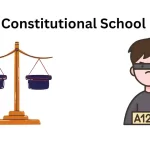India is a country with a rich cultural heritage and an equally diverse legal system. While the Constitution of India guarantees fundamental rights to all citizens, including the right to freedom of speech and expression, there are still laws in place that prohibit certain groups of people from practicing untouchability. This article will explore whatUntouchability is, and discuss the law prohibiting it.
Definition of Untouchability
Untouchability is a social practice that has been prevalent in India for centuries. It refers to the belief that certain groups of people are inferior and cannot be touched without experiencing physical harm. This includes people who are from the Dalit (formerly untouchable) caste.
Untouchability is illegal in India under both the Indian Constitution and the law against discrimination. It is also prohibited by international treaties to which India is a party.
Despite these laws, untouchability still persists in many parts of India. The government has made efforts to address the issue, but progress has been slow. There have been some successes, such as a court case that resulted in the death of a man who had been abusing a Dalit woman. But much work remains to be done to end untouchability completely.
Untouchables in India
Untouchability is a social practice that has been condemned by the Indian Constitution. It refers to the belief that some people are not worthy of being touched because of their caste or social group. This makes it illegal to discriminate against individuals based on their caste.
Untouchables have long been marginalized in India. They have been subjected to exploitation, abuse and even violence. This has led to them living in poverty and suffering from health problems. They also face discrimination in areas such as education, employment and housing.
The Indian government has taken measures to combat untouchability. These include enacting anti-untouchability laws and providing financial assistance to those affected by the practice. Additionally, the government has encouraged education and awareness programs on the issue.
The British Raj and Untouchables
Untouchability was a practice in India that prevented people from associating with anyone who was not considered “upper caste.” The British Raj made efforts to end the practice, but it took many years and many battles.
Untouchables were considered to be impure and unclean, and were not allowed to enter temples or other places where the upper castes had access. They were also not allowed to share a kitchen or toilet with members of the upper caste. These restrictions were often enforced through violence.
The British Raj made a number of attempts to abolish untouchability. The first was in 1829, when the British government passed a legislation that prohibited members of the higher castes from touching or abusing lower caste individuals. This law was later extended to include inter-caste relationships.
In 1857, another law was passed that made it illegal for anyone to discriminate against someone on the basis of their caste. This law was later extended to include gender as well.
Despite these laws, untouchability continued to be a problem in India until it was finally abolished in 1947. It took many years and many battles, but eventually the British Raj succeeded in ending this practice.
The Indian Independence Movement and Untouchables
Untouchability is a practice that has been banned in India since 1947. The Indian Independence Movement was a time when many Indians fought for their right to freedom and equality. Untouchables were among the groups who fought for their rights, and they made significant progress towards abolishing untouchability.
Today, discrimination against untouchables is illegal in India. The Indian constitution protects all citizens from discrimination based on caste, creed, or race. This includes members of the untouchable community. It is important to remember that this protection does not extend to all aspects of life. For example, the government cannot require people from the untouchable community to live apart from other groups of people. However, discrimination against them is still prohibited by law.
The Untouchables Rehabilitation Act was passed in 2009 to help improve the lives of members of the untouchable community. This act provides financial assistance and education opportunities for those living in poverty. Additionally, it seeks to reduce social isolation and encourage positive attitudes towards the Untouchables community.
The Modern Day Status of Untouchables
Untouchability is a term that has been used in India to describe people who are considered to be below the social standing of other people. Historically, this term has been used to refer to people who are not allowed to touch other people because they are believed to be unclean.
Today, untouchability is no longer a legal or social practice in India. Untouchables were once forced to live on the margins of society and were not allowed to hold certain jobs or marry into high-status families. However, today they are considered equal citizens and can access education and employment opportunities.
Untouchable communities have also worked hard to improve their social status and gain acceptance from mainstream society. They have created their own schools and hospitals, and have worked together with government officials to change laws and promote social reform.
Conclusion
There is no single law that expressly prohibits the practice of untouchability, though there are a number of laws that could be used to prosecute someone who commits Untouchability. Section 377 of the Indian Penal Code, for example, criminalizes sexual intercourse “against the order of nature,” which could be interpreted to prohibit practices such asuntouching. Additionally, various other statutes – such as The Scheduled Castes and Scheduled Tribes (Prevention of Atrocities) Act 1989 and The atrocities against SC/ST Act 1993 – can also be used to prosecute individuals who commit acts of Untouchability. Nonetheless, it is clear that there is growing concern about the prevalence of Untouchability in India and efforts are being made to address the issue through legislation and education.






